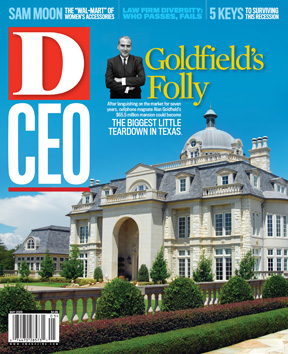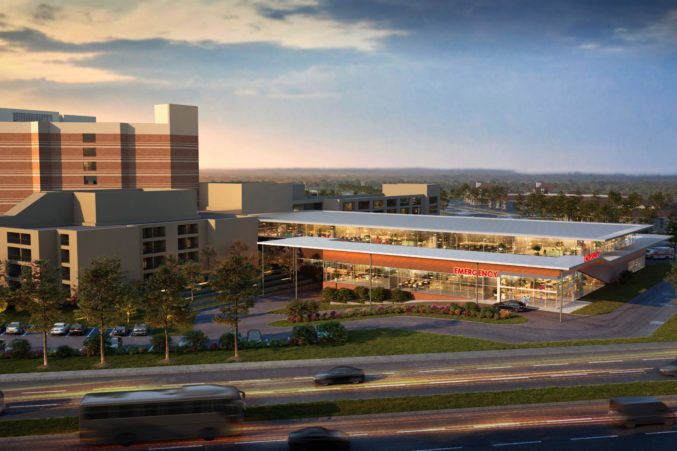Jawboning the other week with two fellow transplants from California—both CEOs of major local companies—I was reminded why Texas, and Dallas-Fort Worth, are withstanding this recession relatively well compared to other states and cities.
The setting was an Accenture event focusing on corporate innovation. The transplants were Alan Boeckmann, the head honcho at Fluor Corp., the construction and engineering giant, and Eric Affeldt, the top man at private-clubs company ClubCorp. Fluor was based in Orange County, Calif., before relocating here in 2006, and Affeldt, like me, was born and reared in Southern California.
“Californians are not friendly people,” Boeckmann said, chatting casually before the program.
So he was pleasantly surprised, the construction exec went on, when Fluor moved to Irving and discovered that Texans are friendly.
Affeldt agreed.
He recalled waiting for a checker at Tom Thumb one day when another shopper, also in line, began chatting pleasantly with him about nothing in particular. “I remember thinking to myself: ‘That’s great, but—why are you talking to me?!’ ” Affeldt said, grinning at his reaction.
I had to concur. In Dallas elevators, I noticed early on, people actually acknowledge each other. In an elevator in Los Angeles or San Francisco, it’s eyes straight ahead, no talking allowed.
The friendliness of the Lone Star State compared to states like California extends well beyond personal warmth, though. Texas is “friendly” to its residents in many ways, including, to take just one example, in the reasonable cost of its housing.
Most importantly to CEOs like Boeckmann and Affeldt, however, this state stands in stark contrast to California and others in its welcoming attitude toward business.
That attitude is marked by reasonable regulation, low taxes—indeed, no state income tax at all—and a Legislature that spends prudently, most of the time, anyway.
The upshot? The Lone Star State was one of only six U.S. states that experienced job growth in 2008. Chief Executive magazine named Texas the best state in the country in which to conduct business. And our legislators were able to enjoy the luxury of a multibillion-dollar budget surplus.
Compare that to California, where unions, big-spending politicians and “activist” groups have turned the state into a fiscal train wreck. Companies burdened by sky-high taxes and environmental over-regulation are fleeing California en masse, and many of them are winding up in Texas—and Dallas-Fort Worth.
But to all this good news, we need to add a caveat. With more and more newcomers coming to Texas—“outsiders” like me—there’s increasing pressure for Texas, and North Texas in particular, to become more like the places the newcomers left.
You can see that everywhere, in ways large and small: in the drumbeat against Texas-sized pickup trucks and SUVs, for example; or against smoking or cellphones or our traditional right-to-work laws; or in favor of new green rules designed to make Texas as “progressive” as, well, New York or California.
God forbid that ever happens. If it does, Texas will be in the same boat as those workers’ paradises in no time. Our businesses will start moving to Utah or Idaho or South Dakota. And in our elevators it will be all eyes to the front, no visitin’ allowed.





